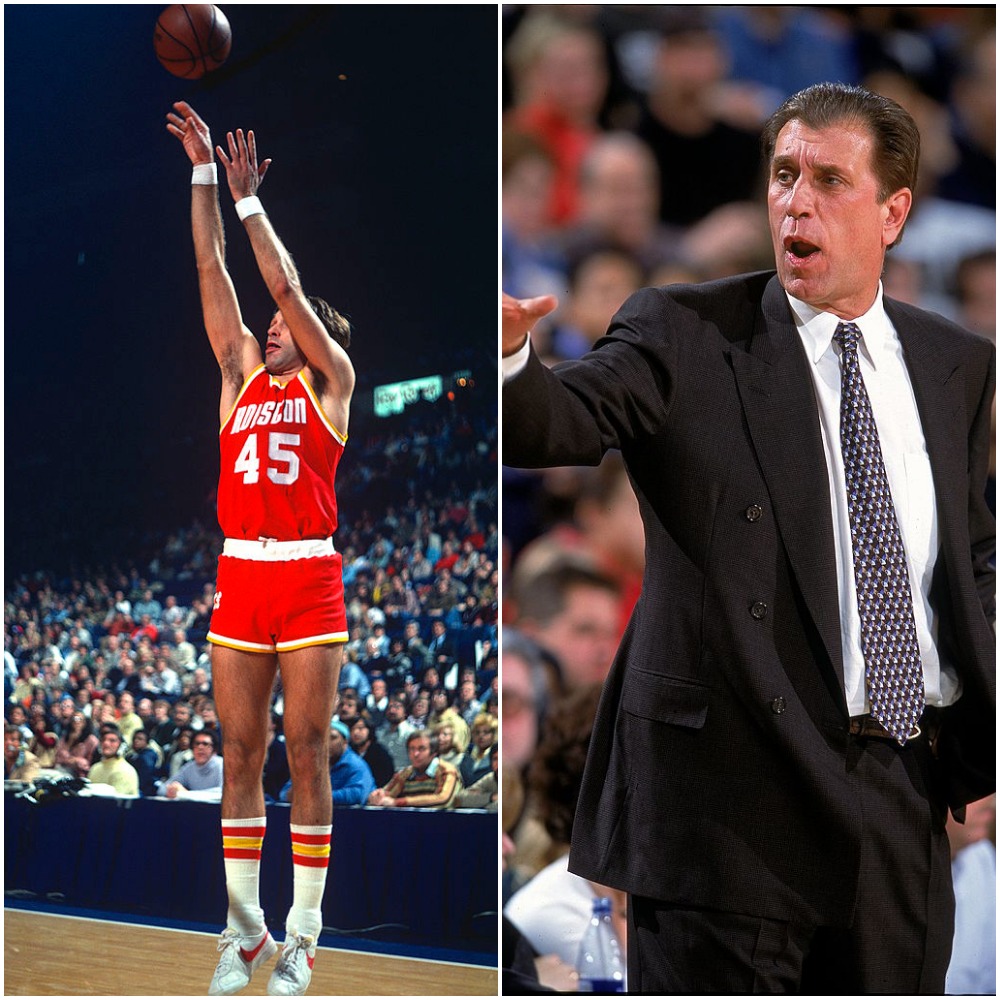NBA
Hall of Fame Inductee Rudy Tomjanovich a Reminder of NBA’s Violent Past

When the Basketball Hall of Fame announced the star-studded 2020 class including Tim Duncan and the late Kobe Bryant, for many, the name Rudy Tomjanovich summons memories of one of the darkest moments in NBA history. It’s a moment that nearly cost Tomjanovich his life and a moment that changed the game forever.
Kermit Washington punches Rudy Tomjanovich
On December 9, 1977, in an early-season match-up at The Forum between the Los Angeles Lakers and Houston Rockets, a scuffle broke out between the two teams near mid-court. Who started it and why it started has been a matter of debate for years. Video shows Lakers star Kareem Abdul-Jabbar and Houston’s Kevin Kunnert tangled up when Los Angeles forward Kermit Washington joins the fracas.
Players from both teams sprinted toward the early stages of the fight. Tomjanovich arrived first. When Washington saw Tomjanovich approaching, he turned, cocked his right arm, then stepped toward him, delivering a sharp blow just below Tomjanovich’s nose.
Tomjanovich crumbled to the floor, the back of his head slamming against the hardwood. Abdul-Jabbar described the sound of Tomjanovich’s head hitting as a “melon being dropped on concrete.” A puddle of blood began to quickly spread next to the fallen player.
A Houston medical staff member rushed to Tomjanovich’s side. After a couple of minutes tending to him, he helped him up off the ground and they headed straight to the locker room. Under the stands out of sight from the public, Tomjanovich saw Washington and confronted him, asking him why he did it. Security personnel intervened and the two men went their separate ways.
Tomjanovich fights for his life
Inside the locker room, Tomjanovich thought he had just broken his nose and hoped to return to the game. Instead, the medical staff rushed him to a hospital, where he would discover he had suffered a concussion, had a fractured skull, broken his jaw and nose, and was leaking spinal fluid into his skull in a way he could taste it leaking into his mouth. He could die.
Tomjanovich later said he couldn’t sleep those first few days in the hospital after the incident because he feared he might not ever wake up. When the swelling in his face subsided, doctors reconstructed his face.
One doctor who worked on him said, “I have seen many people with far less serious injuries not make it.”
Tomjanovich survived, but didn’t play the rest of the 1977 season. He returned the start of the 1978-79 season, made the All-Star Game that year, and played for three more seasons before retiring in 1981. He coached the Houston Rockets to their two NBA titles in 1994 and 1995 and coached Team USA to the gold medal in the 2000 Olympics.
The Rudy Tomjanovich aftermath leads to drastic changes in NBA

Prior to that incident, fights and violent interactions in the NBA weren’t encouraged, but they certainly weren’t discouraged. It was part of the game. Punishment for any altercation did not exist.
After the punch, the NBA fined Washington $10,000 and suspended him for 60 days missing 26 games, the longest suspension for an on-court incident in league history at the time. Washington’s punishment served notice to the rest of the players, those type of incidents would no longer be tolerated.
The next season the NBA added a third referee to all games that would trail the play and call any fouls that might happen behind the action similar to what happened in Los Angeles. The NBA’s policy for on-court altercations started a dramatic transformation process into what are today’s current guidelines. Any player who throws a punch today, even if it misses, is automatically ejected and suspended for the next game.
Rudy Tomjanovich is lucky to be alive, much less in the Naismith Basketball Hall of Fame. While his individual accomplishments and legacy will be remembered in the hallowed halls of Springfield, Massachusetts, his unintended sacrifice that November night in Los Angeles forever changed the game and the league and its players are much better off because of it.











